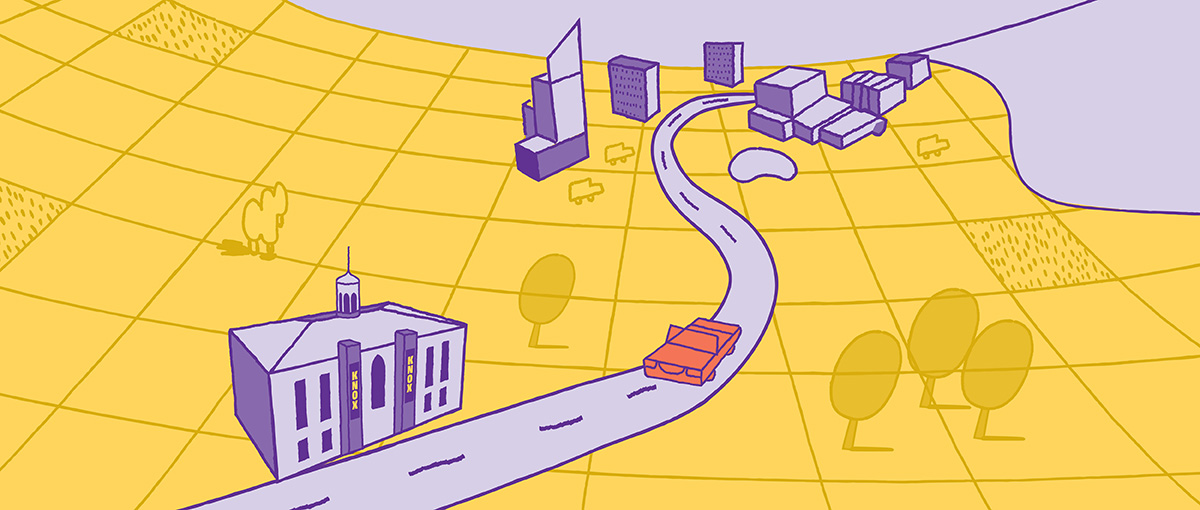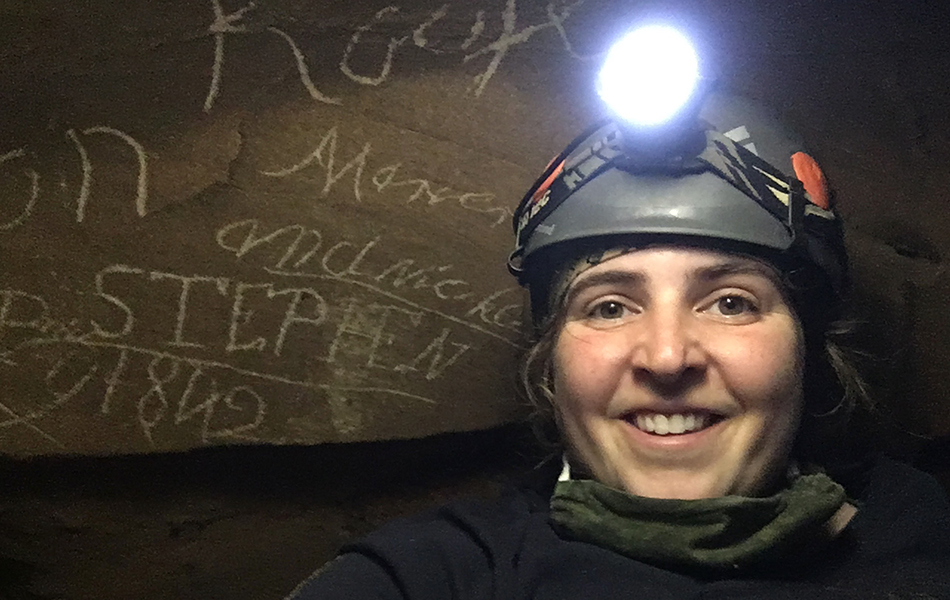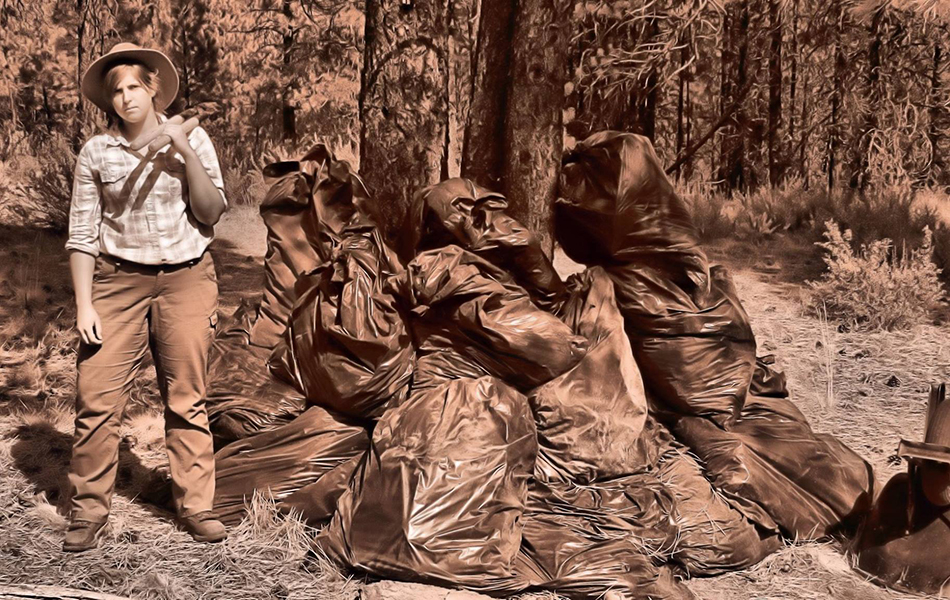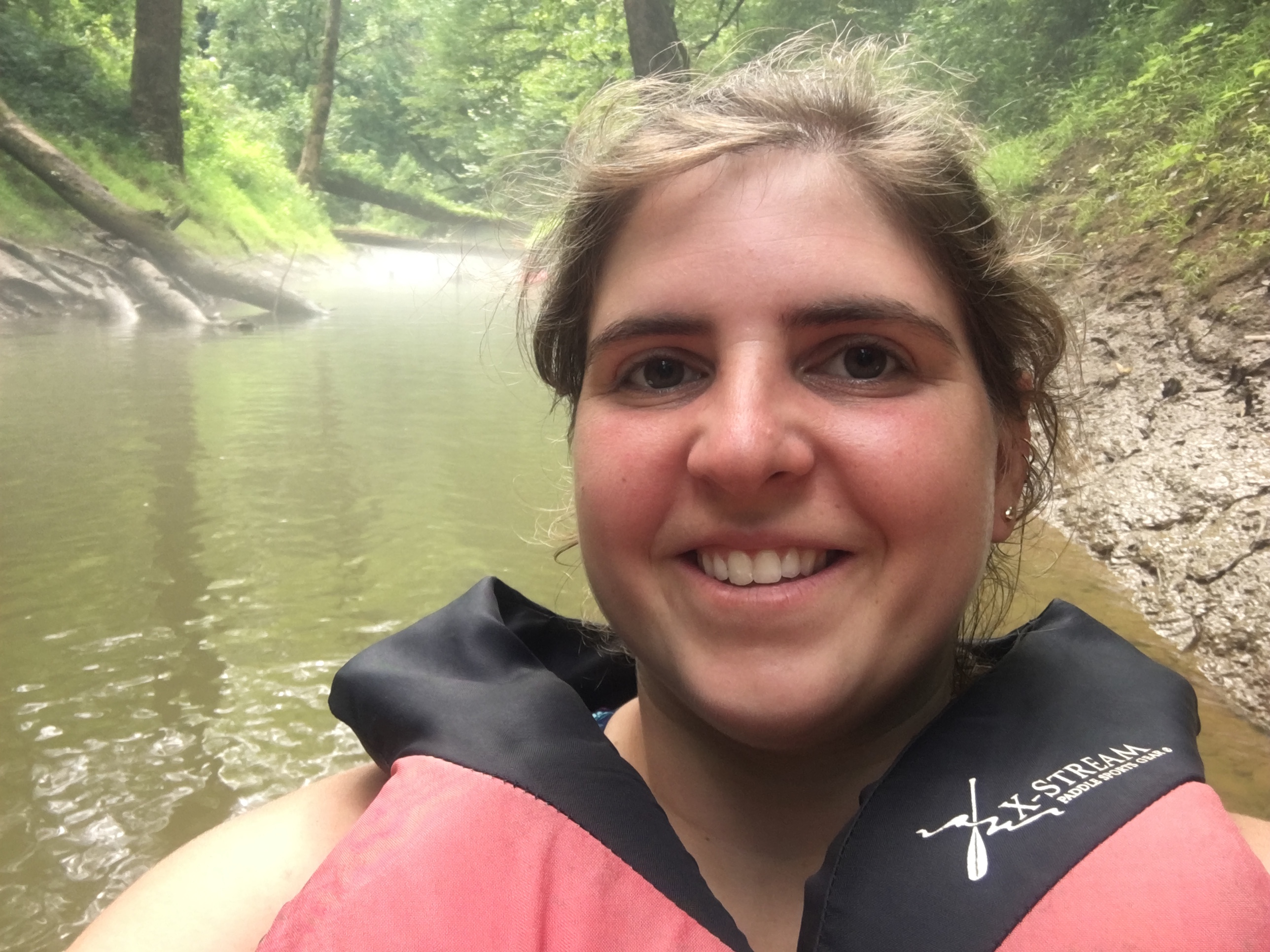
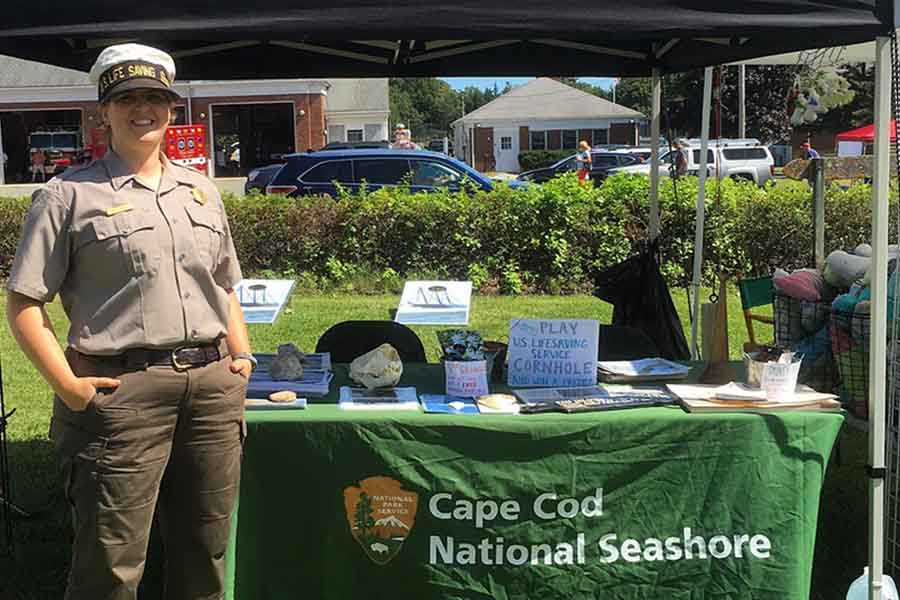
Sara DeMaria '11
Hayward, WI
Major in Biology, Minors in Art History and Environmental Studies
Sara, a biology major and art history and environmental studies double minor, now works as a support services specialist with the U.S. Department of Agriculture (USDA) forest service.
What was your major and why did you choose it?
My major at Knox was biology. I was undecided until the last minute of my sophomore year. When I took the intro-level bio course on genetics with Professor of Biology and Associate Dean for Curriculum and Assessment Judith Thorne, everything just clicked. I decided I wanted to explore biology. I did everything from developmental biology, conservation biology, genetics, all of the different bio courses. I loved it. I also minored in art history and environmental studies. I tried to keep it balanced in that true liberal arts way.
What kind of work are you doing now?
I am a support services specialist with the USDA Forest Service in Hayward, Wisconsin. When I left Knox, I went to work at Ohio State University in a lab doing genetics work, but I didn't like the lab atmosphere. I was stuck in a windowless building and I didn't feel like I was productive, so I applied for outdoor jobs. I ended up working for The Nature Conservancy for about three years in Oregon, North Dakota, Michigan, and Ohio. I wanted to work on communicating conservation work to the public, so I looked for jobs with the National Park Service. I spent two summers at Cape Cod National Seashore doing interpretive programs and manning the front desk at the visitor center. Then, I did a summer at Mammoth Cave National Park just as COVID-19 hit. We had a weird season, but I still did some programs and tours of the cave. After that season ended, I applied for other positions and got this one in Wisconsin. If you're familiar at all with federal jobs, a lot of employees start as seasonals. It’s a pretty big deal to get your first permanent position. It's an opportunity that you don't want to pass up.
I feel perfectly positioned here. I've got my biology background, so I know a lot about the work that field folks do in the forest. I’m used to communicating with the public from my time with the park service. I also have many administrative skills and things that I've picked up along the way. It’s like the liberal arts in a way. I wear many hats here.
How do you apply your major to your work today?
There are a lot of different ways that I apply biology to my current job. On paper, my job doesn't necessarily involve a lot of biology. However, we have a lot of science-based information that we need to communicate to the public. For example, we might allow people to cut firewood in certain places and not in others for various reasons: perhaps to preserve threatened and endangered species, or because we've found some sort of fungal or insect disease in an area. I can explain why we might clearcut one area of trees and leave another as a shelterwood system. I can communicate about what we're doing to combat climate change. My degree really allows me to be a bridge between our field staff and the public. The other side of it is that in any area of biology, especially on the research side, you're creating processes and following detailed sets of instructions. Many of the processes I do to keep our district running are very detailed and involve a lot of repetitive steps and record-keeping. The documentation and administrative side of biology really translates into the processes that I do every day.
What brought you to Knox?
My great-aunt and great-uncle both attended Knox and met there. I looked at colleges all over the country. I toured Knox as a “sure, sure, I'll go see your Alma mater.” I went to a charter high school that was very small. When I got to Knox, I felt very comfortable with the size. I liked that I wasn't going to be funneled into a certain degree program. Even if I did biology classes, I could still do art classes and participate in things like the jazz combos. Even though Knox is relatively small, it presents many opportunities.
What were you involved in at Knox?
Jazz combos, Terpsichore Dance Collective, Women’s Chorale, an Irish dance club known as the Gaelic Fire, and Honors research.
Is there any Knox experience that stands out as particularly influential for you?
I wouldn’t say there was just one thing that stood out. There are the different students and ideas that you're surrounded by; the opportunity to try courses in any area so you're not just funneled into a certain program; the amount of extracurriculars; the nurturing atmosphere where you're encouraged to try new things. I felt that there was an opportunity to dabble in a lot of different activities. I think that has prepared me to talk to anyone in an informed way about almost anything.
